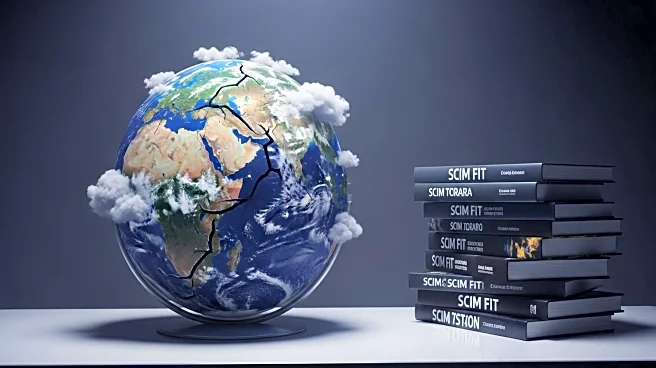What's Happening?
News Corporation's Daily Telegraph has come under scrutiny for its portrayal of Australia's National Climate Risk Assessment as 'science fiction.' The assessment, which outlines the impacts of climate change on Australian lives and the economy, was dismissed by the newspaper based on the views of Dr. Roger Pielke Jr., a U.S.-based political scientist known for downplaying climate change impacts. Experts have criticized the newspaper's reliance on Pielke Jr.'s claims, arguing that the risk assessment is grounded in scientific evidence and realistic scenarios of global warming. The Daily Telegraph's coverage has sparked debate over the media's role in shaping public perception of climate issues.
Why It's Important?
The portrayal of climate science as fiction by a major media outlet can influence public understanding and policy decisions related to climate change. By dismissing scientific assessments, News Corp risks undermining efforts to address climate challenges and transition to renewable energy. The media's framing of climate issues can impact public opinion and political discourse, potentially hindering progress in implementing effective climate policies. The controversy highlights the need for accurate and responsible reporting on environmental issues, as misinformation can have far-reaching consequences for society and the planet.
Beyond the Headlines
The Daily Telegraph's approach to climate reporting raises ethical questions about journalistic integrity and the responsibility of media organizations to provide accurate information. The dismissal of scientific assessments as 'science fiction' reflects broader challenges in communicating complex environmental issues to the public. This incident underscores the importance of critical media literacy and the role of journalism in shaping societal attitudes towards climate change. The debate over media coverage of climate issues may prompt discussions on the need for regulatory measures to ensure balanced and factual reporting.









